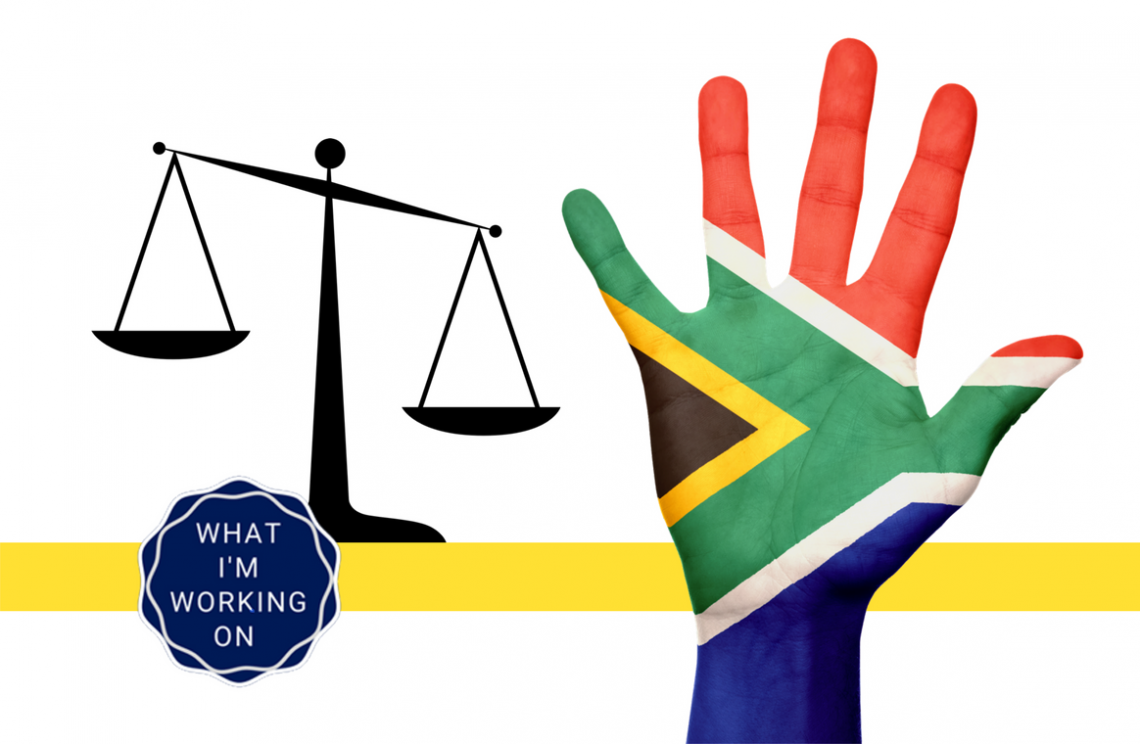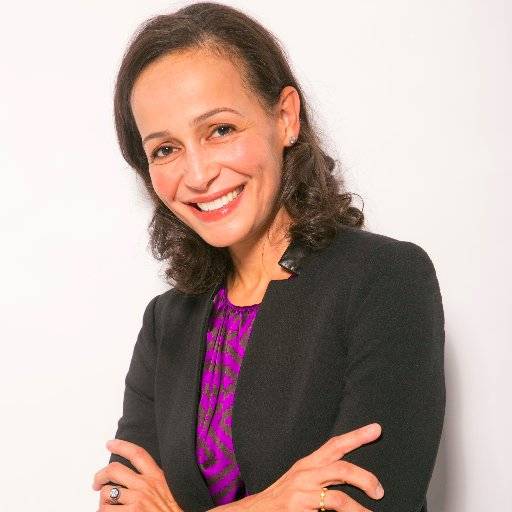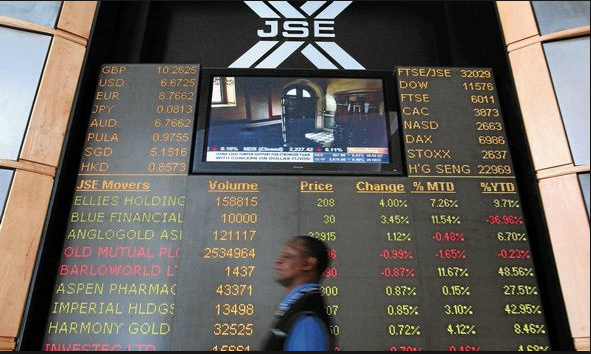
 Anne-Maria Makhulu is an associate professor of cultural anthropology and African and African-American studies at Duke. Much of her work, including her current research, focuses on globalization and issues of political economy in South Africa.
Anne-Maria Makhulu is an associate professor of cultural anthropology and African and African-American studies at Duke. Much of her work, including her current research, focuses on globalization and issues of political economy in South Africa.
Makhulu is examining what she deems a broken promise made to a majority black population of South Africa 23 years ago when democracy took hold there following the end of apartheid.
She spoke with Duke Today recently about her current work. Here are excerpts:
Hello, Professor Makhulu: what are you working on?
In very plain terms, I’m thinking about what it means to have expertise, knowledge, capital if you will, in South Africa at a time when everything would indicate that race doesn’t matter anymore. So it’s possible for black South Africans to access higher education, to get credentials, to get into the workforce, and to get into highly skilled occupations. But they are still facing massive, massive hurdles.
This is important because part of what defines the old system of apartheid is the systematic and wholesale de-skilling of black South Africans. People were very systematically directed to work in mining, agriculture, manufacturing, un-skilled or semi-skilled work. Women worked in service – as maids or servants. This is a decades- if not centuries-old process of bringing black South Africans into the orbit of industrial work by stripping previously quite affluent peasant aristocrats of land, and then funneling them through a terrible education system.
Weren’t medical schools and other professional training programs closed to blacks?
They were. So you could go to somewhere like the University of Fort Hare, which really became the intellectual home of African intellectual class, and there was a very popular correspondence school, the University of South Africa. You could also go to what were called bush schools - - universities set up by the state in the so-called homelands.
So is the playing field there now not even?
It’s thoroughly uneven, still. A few different things have happened. One, there’s a real crisis in education generally, K-12. Most conspicuously, there’s a crisis in higher education that has brought on a series of campus-based social movements to address the problems.
At all universities?
There are about 27 universities in South Africa. They vary, of course. There are formally white-only universities like the University of Cape Town. There are so-called former bush schools like the University of Fort Hare. Some of them are much newer and oriented toward technology, science, that sort of thing. But across all of these, there has been a variety of student frustration over the cost of higher education and the inaccessibility of it.
They’re all too expensive?
In a country where inequality is extreme, it really doesn’t matter if they’re ‘expensive.’ They’re de facto out of reach to many.
Also, as more and more black students have been admitted to the universities, per person spending has decreased.
In the early 1990s, a lot of black South Africans who were in exile returned to South Africa after getting an education elsewhere. So they filled roles as ‘experts’ in various fields and become a generation of skilled black South Africans.
What’s happening now in South Africa?
Right now there is a very, very clear sense that the state is corrupt. We’re not just saying corruption here and there. We’re talking about systematic, wholesale corruption. Most governments, as an example, contract out the building of infrastructure – roads, bridges. All of this can be contracted out to people that the state has a clear interest in offering that business to. And people get kickbacks.
 You’re saying a lot of people in South Africa, even those with particular skills, have a tough time getting business if they don’t know the right people in government?
You’re saying a lot of people in South Africa, even those with particular skills, have a tough time getting business if they don’t know the right people in government?
Exactly. It’s a big patronage system, but it’s way beyond patronage as we usually think of it. It’s so systemic. It’s everywhere.
So is there a lesson in here about democracy not being an instant cure-all?
Yes, you could say that. The transition – they call it ‘transition’ in South Africa – the transition to democracy has proven not only to be disappointing, but what exactly has it transitioned to?
I mean, you’re not going to get arrested anymore in the middle of the night for distributing political materials. That’s not going on. But it’s like a lot of places where the claim to the new freedoms, the new human rights protections, these things don’t actually, in practice, translate to a great deal.
How did you become so interested in this topic?
Everything I think about when it comes to South Africa is biographical (I happen to believe that all intellectual projects are). I grew up outside South Africa, in exile, during the so-called ‘dark days of Apartheid’ because my father was blacklisted by the state. But not a little ironically, for all the distance between South Africa and where we landed, first in Britain, then in Switzerland, and finally Botswana, South Africa always felt very present. I was able to conduct dissertation research in South Africa because of the timing of the transition to democracy in 1994, and beginning in 1998 it was possible for me to live there for a year. So every facet of the so-called ‘new’ South Africa was fascinating to me because I now had direct and immediate access to it.